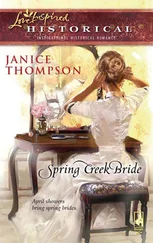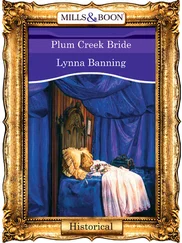Your father gave me the album as a going-away present. On the cover is a picture of a barefoot child looking up at gnarly trees. Your father signed it the same way he’d signed my high school yearbook, with his first and last names, as if I might forget .
Dear Byrd ,
You were born in one place but conceived in another, a faraway place near an ocean. There was a man there who swallowed fire. He would light a long stick and put it in his mouth and people would clap and cheer and drop money in his box .
Everybody in that place went around on wheels — skates, skateboards, scooters, bicycles, unicycles. I saw a two-legged dog with wheels where his back legs should have been, his own little built-in chariot .
It almost never rained there. When it did, your father told me, children stayed home from school .
Dear Byrd ,
This is what my astrologer says about you: You are a Virgo, with a probing mind and a head for logic. You are older than your years. “Like Tom Sawyer,” my astrologer said. “Or was it Huck Finn?”
Your moon is in Aquarius, which means you will feel different from other people, like you don’t fit in, which can be a problem because your sun is in Virgo, so you’ll want to fit in. (I have a lot of Virgo in me, so this is something I understand.)
Most of your planets are in the western hemisphere, the hemisphere of fate, as opposed to the hemisphere of self-determination. Your life feels like something that happens to you regardless of what you do. This is also true for me. People come into our lives mysteriously and become important in ways we don’t understand .
I can guess what you’re thinking: why would I confide in an astrologer? I don’t even know if he’s a good astrologer. He’s a thin, ghosty man with gray skin, damp hands, and a voice that cracks. He wears a huge wristwatch and clothes that don’t match, plaids with plaids. He is so dour that if he ever smiles his face looks like it’s breaking .
But he is trustworthy. I can tell him things and he won’t betray me, because he has no one to betray me to. He is the most alone person I know .
Your moon is in the tenth house, which means you have a strong emotional bond with your mother .
“Which mother?” I asked .
“I don’t know,” he said .
A thunderstorm follows Bryce to Greensboro. He’s driving to his meeting, listening to the radio, some tired country song turned up loud so he can hear it over the thumping windshield wipers. It’s a long drive, especially in the rain. He doesn’t mind.
Claree once asked him why he didn’t go to the meeting in Carswell. He said, are you kidding?
He exits onto Holden Road. The church comes up fast on the left, a brick building in the shape of a triangle. Lutheran.
He is the first to arrive. He turns on the lights in the fellowship hall, a big room in the basement with humming fluorescent lights, waxy floors, painted brick walls, a cross, a plastic tree, and a lectern they don’t use because this meeting is open discussion, not speakers. He makes the coffee and sets out Sty-rofoam cups. He unpacks the literature and spreads it on a table along the wall, props posters on easels, unfolds metal chairs. He likes the sound they make, a gentle creak creak . It gives him a sense of purpose. He’s been sober nineteen days, his longest stretch yet, and he’s craving a sense of purpose. He has never felt so empty. His insides burn.
Gradually the others come in, shake off their umbrellas, pour themselves coffee. They pull their chairs into a circle and wait, talk to each other quietly, their voices steady as the rain outside. Finally Irv looks at the clock and says it’s time. A big man, Irv, with a big voice. Retired military. The meeting is supposed to be leaderless but Irv always leads. “Let’s open with the Serenity Prayer,” he says.
Bryce looks down without closing his eyes. He looks at the circle of shoes. Running shoes, muddy brogans, loafers, Top-siders with curled toes, his own zip-up ankle boots. Sandals, giant leather sandals with black socks — Irv. Bryce has always believed you can judge a man by his shoes. But they aren’t supposed to judge in the program. They’re supposed to accept and be grateful for each other. In the program, all their thoughts are supposed to be like prayers. Thy socks and thy sandals, they comfort me.
They go through the introductions and the reading of the preamble and the welcome and the steps. Then Irv announces tonight’s topic: expectations. He reads a passage out of the Big Book. “Who wants to start the discussion?” he says. “Bryce?” Even though they aren’t supposed to call on each other.
Bryce nods. “I’m having trouble with my wife’s expectations.” The others laugh like he’s making a joke. “It hasn’t been three weeks and already she’s making plans. She talks about how long she’s waited to do things other people do. Join the choir. Take square-dance lessons.” He looks at the shoes to the left of his. Long white running shoes, narrow as a woman’s. Chuck. “She tells me I ought to drop in on our daughter after meetings. We have a daughter in Greensboro. ‘Drop in,’ she says. Like I’m not the last person on earth my daughter wants to see.”
“Remember the reading,” Irv says, though they aren’t supposed to give advice. “What do we do with expectations?” He looks around the circle.
“Let them go.”
“Let them go.”
“Let them go.”
“They’re not mine to let go,” Bryce says.
“I don’t mean your wife’s expectations,” Irv says. “Or your daughter’s. Yours. Let them go. Live in the present. One day at a time.”
They’re all watching him. Their faces look worn, ancient.
Something in him relaxes.
At the end of the meeting they all stand up and hold hands and pump their arms and chant: “Keep coming back! It works if you work it, so work it, you’re worth it!” Bryce holds Irv’s hand, which is meaty and hot, and Chuck’s, cool as a bone. The chant is embarrassing. They grin at each other and roll their eyes. This is part of the program, to go through embarrassing motions together so that no one can judge or be judged.
Afterwards he feels light. He feels like celebrating. If he knew where to find a bar in Greensboro he could go out for a drink. Just one, and feel even lighter.
As a child he was small for his age, stunted by asthma, the runt of a litter of five boys.
His ma spent her evenings at prayer meetings and left him with his brothers, who ignored him, and Cicero, who passed out on the couch. When his ma came home she would put Cicero to bed first, then Bryce, like nothing was the matter.
No one else at his school had a father named Cicero. That, plus being small, plus having asthma, plus coming from the mill village, made him a natural target for bullies. He learned two lessons at school. One: every day would be a new fight. Two: he would always lose.
Dark fall night. A thumbnail moon.
The bookstore where his daughter works is in a nice old house in a neighborhood of nice old houses. He stands on the sidewalk across the street, out of the streetlight, in the fat black shadow of a magnolia tree. He’s pretending he belongs here; maybe he lives in one of the houses and his wife doesn’t allow him to smoke inside so he’s come out for a cigarette before bed. The store’s front window gives off a dusky yellow glow. He can see Addie behind the counter inside, talking to a customer. Her red hair is a curtain; he can’t see her face, only her hands, fluttering the way they do. Books excite her. She won prizes for reading when she was small — all those silver dollars.
Читать дальше












